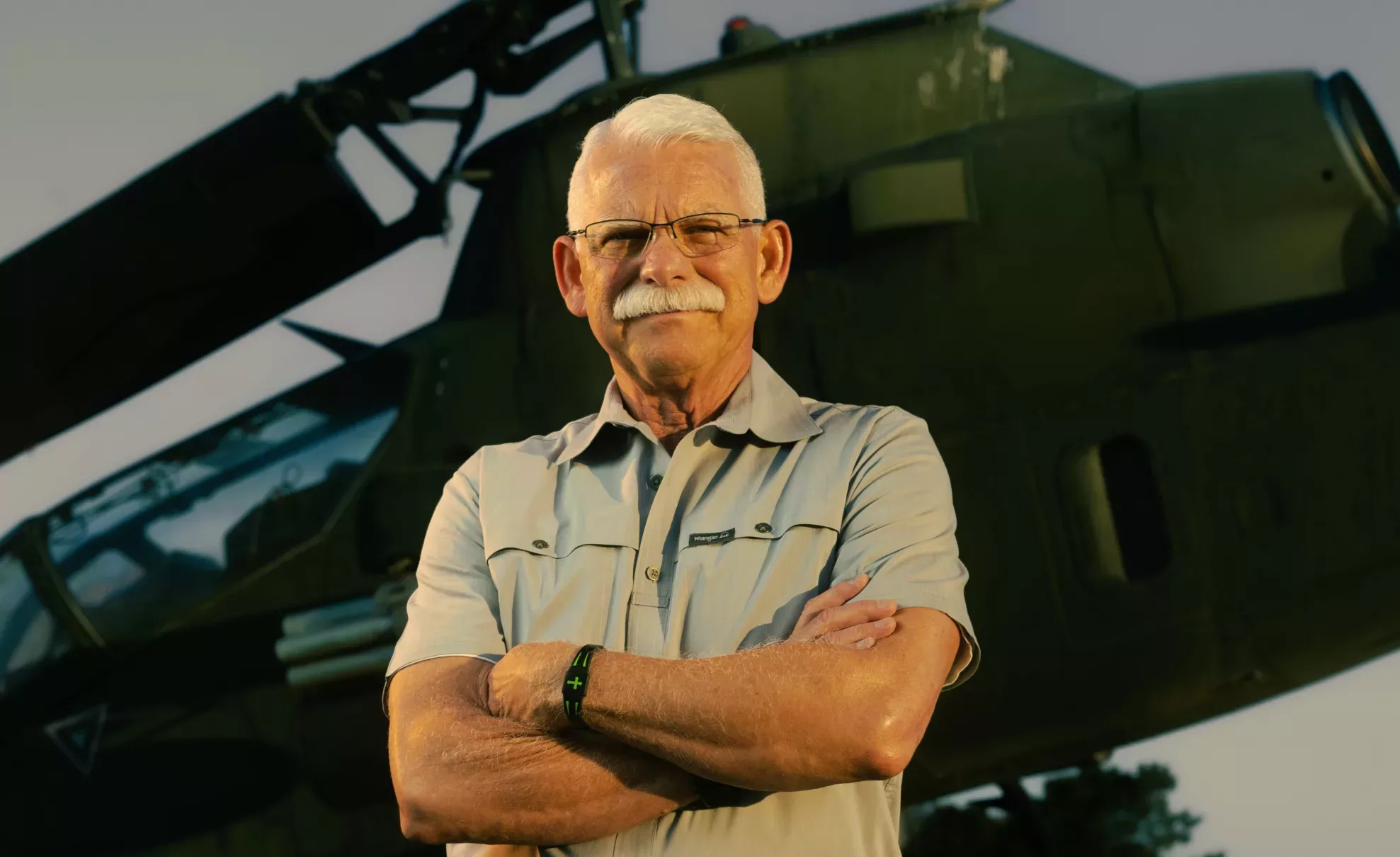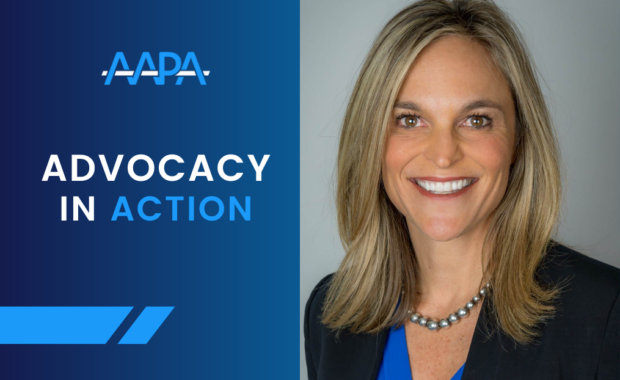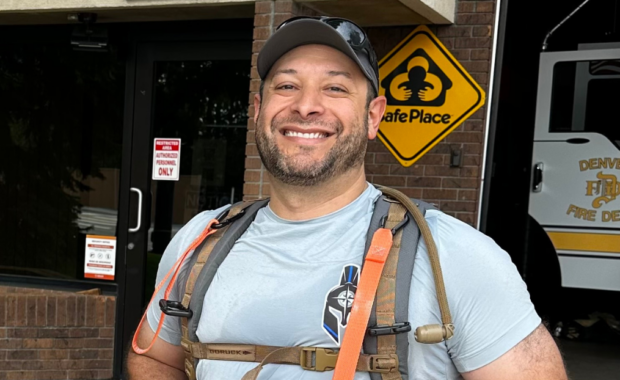2023 Military Service Award Recipient Treats Service Members for Traumatic Brain Injury
‘They are an inspiration to me, and they humble me’
May 19, 2023
By Sarah Blugis

When Timothy J. Camasta, PA-C, DFAAPA, was a MEDEVAC Corpsman in the U.S. Coast Guard, he saw patients while flying with both Cost Guard and Air Force PAs – and he knew that the natural progression of his career would be to become a PA. He applied and was accepted into the UC Davis PA program, and the rest, he says, is history.
Camasta served in the U.S. Navy during the Vietnam era and in the U.S. Coast Guard during the Cold War era. After graduating from high school, he immediately joined the Navy. Following a break in his service during which he traveled and worked a variety of jobs, he enlisted in the Coast Guard. He started as an EMT working on Motor Lifeboats, and was then selected to attend the Coast Guard’s Hospital Corpsman school – eventually becoming a MEDEVAC Corpsman working as part of the crew on Coast Guard Helicopters. Throughout his service, Camasta sustained multiple injuries, experiences that prepared him for the work he does today.
The Military Service Award recognizes a veteran or active duty PA who demonstrates exemplary healthcare service and exemplifies the PA profession’s philosophy of providing accessible, quality healthcare to current members of the military, veterans, or a medically underserved community.
A PA for over 30 years, Camasta has spent the last sixteen years working directly with active duty and retired service members. Since 2015, he has worked as a PA in the Department of the Army and Defense Health Agency at the Intrepid Spirit Center in Fort Carson, Colorado. This multidisciplinary clinic treats active duty and retired service members from all the services for traumatic brain injury (TBI).
Camasta is a subject matter expert in the evaluation and treatment of TBI and its comorbidities, such as post-traumatic stress (PTS), headaches, sleep disorders, dizziness and balance issues, cognitive function problems, and visual disturbances. In his role as a PA, he conducts extensive intakes and refers patients to a variety of treatment modalities as needed: the Intrepid Spirit Center Spirit Center has in-house therapists for physical and occupational therapy, neuropsychologists, social workers, speech language pathologists, optometrists, and neurologists. Specifically, Camasta works with members of the U.S. Army Special Forces (also known as Green Berets) to help “keep them in the fight” or help them transition into civilian life.
“The mindset of the Soldier, Sailor, Marine, Airman, Coastie, and Space Force is to get the job done. They don’t want to let the team or their teammates down, no matter the cost to themselves,” Camasta says. “The work is very dear to my heart being a veteran myself, and my eldest son being an Afghanistan veteran. They are an inspiration to me, and they humble me.”
Military medicine, Camasta explains, is a conundrum: Patients come first, but overall, the mission must be accomplished, which requires a mentally and physically ready force. He asks patients hard questions about their family life, suicidal ideation, and other issues that could affect the military members’ readiness – something that takes discipline and faith in his own knowledge.
Previously, Camasta was a TBI subject matter expert at the Defense and Veterans Brain Injury Center, (now called TBICoE), where he helped to develop patient and family TBI education sheets. He was also a part of the team that put together a National TBI Symposium.
While at Fort Carson, Camasta initiated, organized, and ran a monthly Special Forces Providers Meeting, during which providers could discuss high interest/at-risk patients returning from their deployments. He then tracked these encounters throughout his TBI clinic to ensure good follow up and continuity of care, something he says was especially important after a highly kinetic deployment to Afghanistan in 2019, where they lost teammates.
“Our military has been at war for their whole careers, 20 years. Many Green Berets can have up to 15 deployments under their belts. They have seen, experienced, and done things that no man or woman should ever have to do,” Camasta says. “Our job as PAs is to ensure they get the best care they need and deserve.”
Outside of his clinical practice, Camasta organized trips from his church to provide medical care and housing at an orphanage in Tecate, Mexico for 15 years. He also developed a relationship with a pediatric burn specialist in Romania in the early 1990s, and organized groups to help bring supplies following the fall of the Berlin Wall. He was selected as the California Academy of PAs Humanitarian PA of the Year In 1998. Throughout his career, he has also mentored several military PA students.
“PAs stand in the gaps that aren’t being filled by a system that is stretched extremely thin. We serve the underserved – those who would not otherwise have timely, quality care,” Camasta says. “We are essential to the future of medicine, but also to the communities we serve. Serving others is what we do as PAs.”
Sarah Blugis is AAPA’s Internal Communications Manager. She can be reached at [email protected].
You May Also Like
2023 Award Recipients
Major Marc Latta Focuses on Transformation
Cardiology PA Viet Le Helps Pave the Way for More PA Researchers
Thank you for reading AAPA’s News Central
You have 2 articles left this month. Create a free account to read more stories, or become a member for more access to exclusive benefits! Already have an account? Log in.



